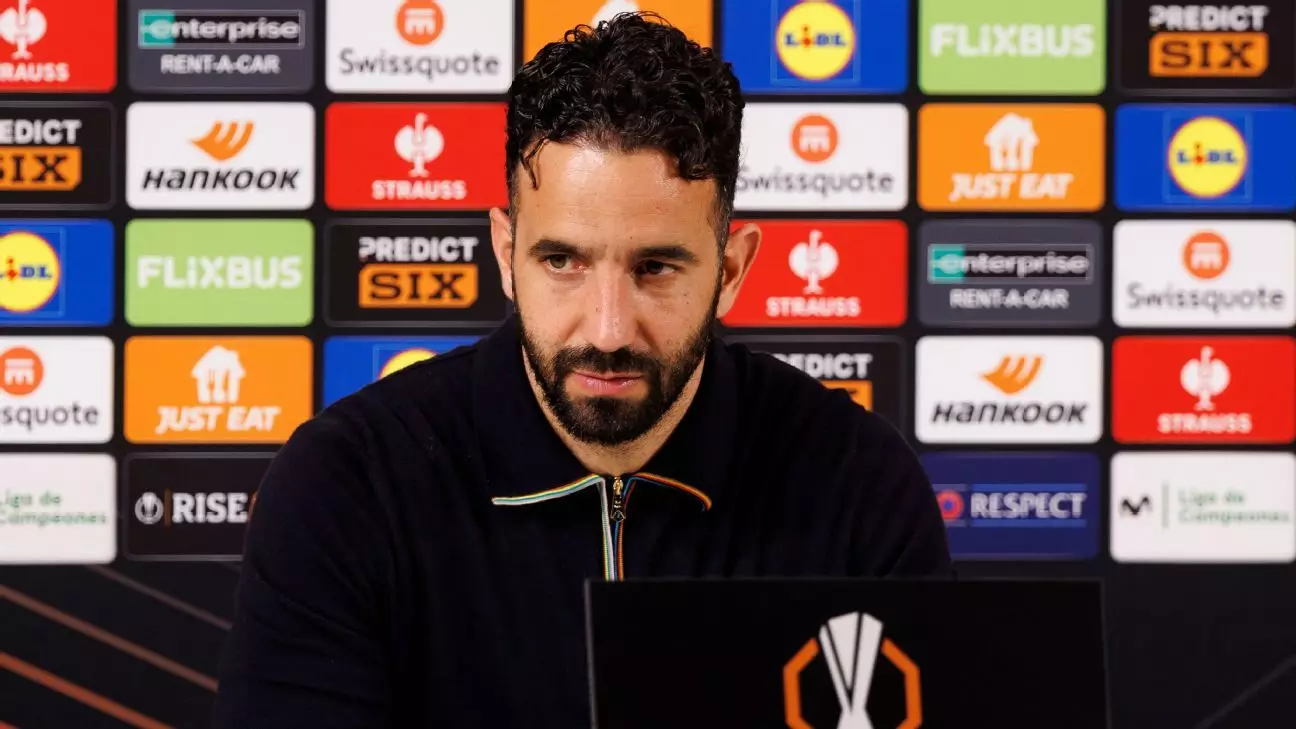Ruben Amorim’s recent decision to pay for the families of his backroom staff to attend the Europa League final is not just a testament to his leadership skills; it reflects a deeper understanding of team cohesion and morale. In an era where financial prudence often overshadows empathy within professional sports, Amorim’s actions shine a spotlight on the human aspect of football operations. The backdrop of Manchester United, with its heavy-handed approach to cost-cutting, including a looming layoffs of 200 staff, adds weight to his gesture. In contrast to heartbreakingly bureaucratic measures, Amorim’s initiative highlights the gap between corporate policies and sincere team bonding.
A Tale of Two Clubs
The imminent showdown between Manchester United and Tottenham Hotspur in Bilbao is fraught with high stakes—not merely for glory in the Europa League but for a coveted spot in next season’s Champions League. Yet, the narrative surrounding the match extends beyond the players on the pitch. In a mind-bending juxtaposition, Paris Saint-Germain, the Champions League finalists, have chosen to invest in their people by sponsoring 600 staff members to attend their match in Munich. This difference raises questions about club culture and priorities: while PSG promotes a sense of collective celebration, Manchester United seems trapped in a paradigm of fiscal caution. Essentially, this disparity showcases not just differing club philosophies, but also reflects broader implications about how teams view their employees—the very backbone of their success.
Empathy Meets Responsibility
What sets Amorim apart in this convoluted situation is his immediate response to embrace his staff’s needs despite the club hierarchy’s financial policies. When informed that his coaches and support team would need to pay their own way, he decisively acted to level the playing field. By covering the costs for 30 staff members to take their families, Amorim enhances the emotional investment of his team, fostering an environment where unity is paramount. This not only uplifts morale but may also translate into heightened performance when it counts most. The psychological benefits of feeling valued and included shouldn’t be underestimated in competitive settings; they often serve as the unseen driving forces behind success on the field.
A Call for Reflection
Amorim’s stance invites Manchester United’s management to reflect on their values in a time of austerity. Instead of upholding team spirit and encouraging a community feel, the current regime appears fixated solely on balancing the books. The contrast with PSG’s approach is stark and thought-provoking. Should football clubs not be arenas where camaraderie is celebrated and nurtured, transcending mere financial limitations? The club’s decision to restrict ticket sales for families, allowing merely two tickets per player, feels surprisingly short-sighted in the grander scheme of creating a legacy of engagement and loyalty among its ranks.
Ruben Amorim’s initiative reveals layers of insight into leadership and responsibility within the sporting community. As champions of the game prepare for potential victory, it’s imperative for their clubs to ensure that the ethos of solidarity and support resonates throughout every part of their organization.

Leave a Reply